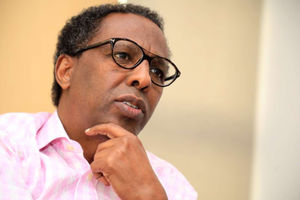
The Supreme Court building in Nairobi.
A friend was vying for a Women Representative post. As the campaigns heated up, a rumour fuelled by competitors started spreading via social media that she was a woman of questionable virtue with a penchant for relationships with "young boys."
She panicked, knowing how religious and conservative her constituency was — but she vehemently knew it was untrue. The question then arose: How should she counter the rumours?
She decided to go round explaining herself to the public in markets, schools, towns and villages. She told the people how false the accusations were. She went on vernacular media to deny the rumours. But she later realised her strategy was not working. Why?
First, she was unwittingly spreading the propaganda to persons who previously had not heard about the issue. Whereas social media has its impact, moving a rumour from restricted online audiences to a larger megaphone of vernacular media and markets, schools, towns and villages is extending the reach of the falsehood.
The social media post could have an audience of 1,000, for instance. But there are millions listening to vernacular media. And since the vernacular media had not picked the rumour in the first instance, there was no logic to go and explain herself beyond the original social media post.
And indeed whenever the politician would explain herself in markets, people who had not heard about the rumour would start digging deeper on the issue. Her reaction towards the social media post was akin to responding to a mosquito bite with a hammer.
Probably she only needed to hire some bloggers to counter the social media post — what is called the proportionality of reaction.
Secondly, even if the rumour of her alleged " immorality"could have percolated to the ground beyond social media hence deserving a fight back, her reaction of orally explaining herself was illogical. Best way to alter views is through actions not through argumentation. Actions speak louder than words, the saying goes.
Robert Greene in his book "48 laws of power" was right when he said one should win through your actions, never through arguments.
Demonstrate, do not explicate. If you think you are a good leader, do not explain how good you are. Demonstrate how good you are. He said, "words have that insidious ability to be interpreted according to the other person's mood and insecurities. "
So my friend should have responded to the rumour by tagging along her husband in all her meetings. Or she could have done a public wedding. That way, people would have seen she was a woman of virtue.
Thirdly, my friend would have benefited if she knew how the theory of "low information rationality" works. Low information rationality is a social theory that holds people are information consumers "with limited benefits and time for processing and understanding information . Therefore, in instances where individuals have to learn new information, they use shortcuts and heuristics to understand information quicker. "
In other words, it does not make sense for most individuals to develop in-depth understanding of most issues. For instance, we all get sick. Best case scenario is we all attend medical school and we treat ourselves.
But we have other things that we pursue in exchange of going to medical school. And when we get sick, we use a shortcut- consult an expert called a doctor or for some other people, they make guesses or consult traditional medicinemen.
The same logic applies in politics. Probably my friend had conducted herself in a manner that incentivised people to activate low information rationality. Probably she was allowing young men in her car. And since people did not have time to establish the truth, they made the deduction these were her lovers. The remedy should have been to avoid entertaining young men in her car otherwise people would make the false deduction.
The above story applies in the current fight between Ahmednasir Abdullahi aka Grand Mullah and the Supreme Court. Keeping aside the debate on whether what Ahmednasir said about the Supreme Court was true or not, the judges’ decision was erroneous for many reasons.
First, it amplified the allegations beyond the original social media echo chamber. Now more Kenyans know about the allegations. This has been achieved by the reaction of the Supreme Court. Second, the Jjudiciary’s best defence against Ahmednassir’s allegations should be through actions — probably through rendering decisions that show absolute fairness and independence.
The 2017 decision to overturn presidential elections or the Building Bridges Initiative decisions were good examples of demonstrating as opposed explication of fairness. But definitely some court decisions like the ones that have tended to exonerate politicians suspicious academic qualifications or Pastor Paul Mckenzei alleged many Court exonerations prior to his current incarceration, do damage to judicial reputation.
Thirdly, the Supreme Court should be aware the public will not have the time to read the rationale of its decision to ban Ahmednasir. The public will use shortcuts by getting interpretation from some experts— politicians or lawyers on TV talk shows.
Probably, some politicians will be more than happy to use this as an example of a Judiciary that is not open to criticism. And sadly, the court will not have similar opportunity to respond in markets or shopping centres.
The best it can do is to issue a statement at the Supreme Court staircases. The Supreme Court audience is beyond the lawyers or clients who appear before it. The millions who watch Supreme court from a distance should matter more — the silent majority.
How will this silent majority interpret this decision to ban Ahmednasir? Probably the silent majority did not know him. But they now know him by virtue of the ban. He was item one on Thursday’s prime time news on every news channel. Supreme Court anger is very understandable.
Those of us in public service get undeserving criticism.
But in the public agora, responding through good actions that show how illogical the criticism tends to be better .
- Dr Kangata is the Governor Murang’a County. Email [email protected].








